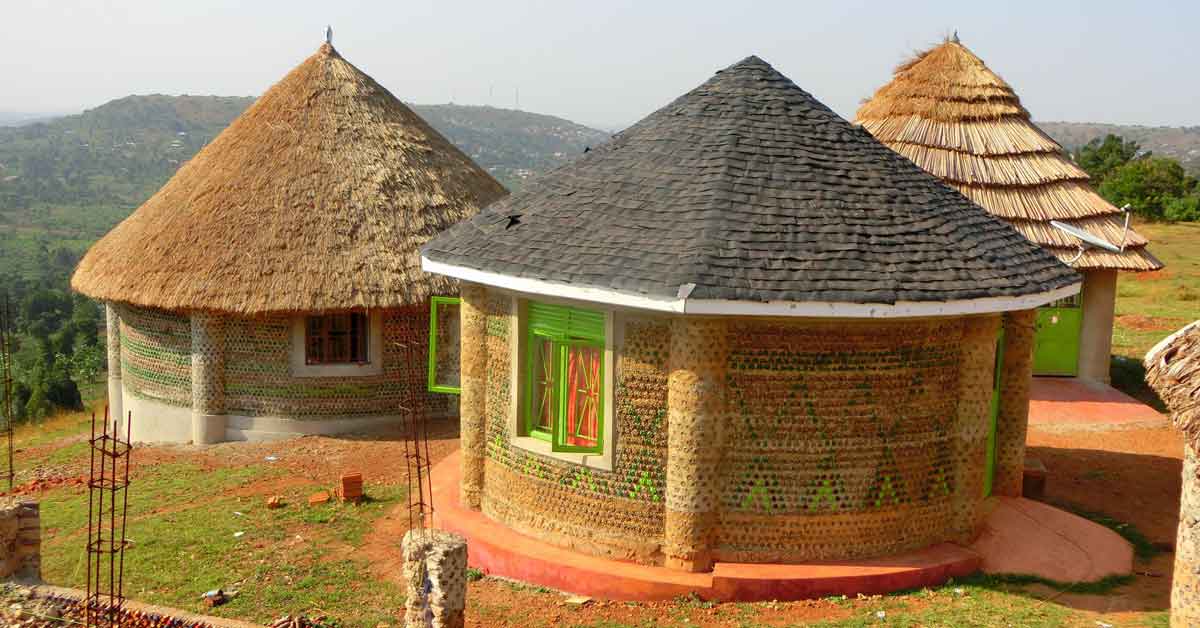In Uganda, millions of youth aged 15-30 face high unemployment rates due to varying levels of education.
Additionally, over 600 tons of plastic waste are poorly disposed of in the country, which has no waste disposal system for plastic bottles. In turn, these bottles clog pipes, flood city centers, and end up in waterways.
At the same time, a growing population and mounting infrastructure issues leaves Ugandans in need of more housing. And considering the low monthly income of most rural Ugandans, helping people find opportunities to improve their health and economic stability needs a unique approach.
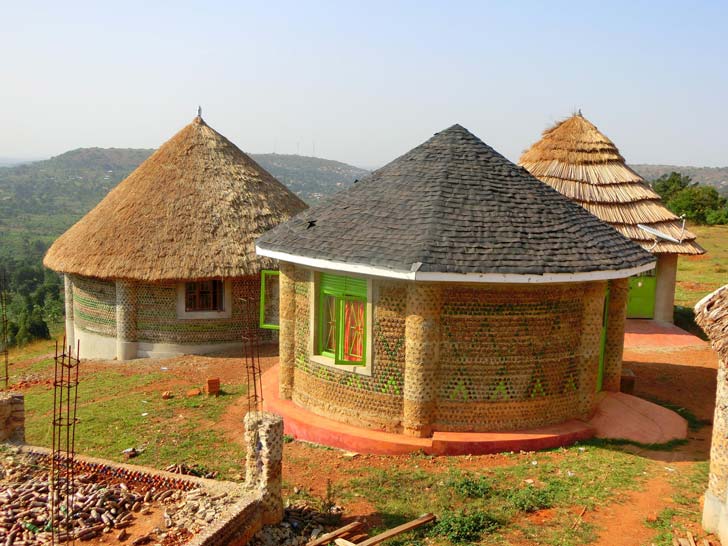
With all of these factors in mind, in 2022, David Monday founded Pendeza Shelters. The startup helps build homes, shelters, and other structures out of eco-bricks and other sustainable materials that are weather-resilient and offer an opportunity for upward mobility for the most marginalized members of the community.
“‘Pendeza,’ meaning ‘beautiful’ in Swahili, reflects the company’s dedication to constructing durable, attractive, fireproof, and temperature-regulated alternative housing solutions for disaster-affected populations,” the company’s website shares.
These populations include refugees, people who have lost their homes to floods, and women in need of social support.
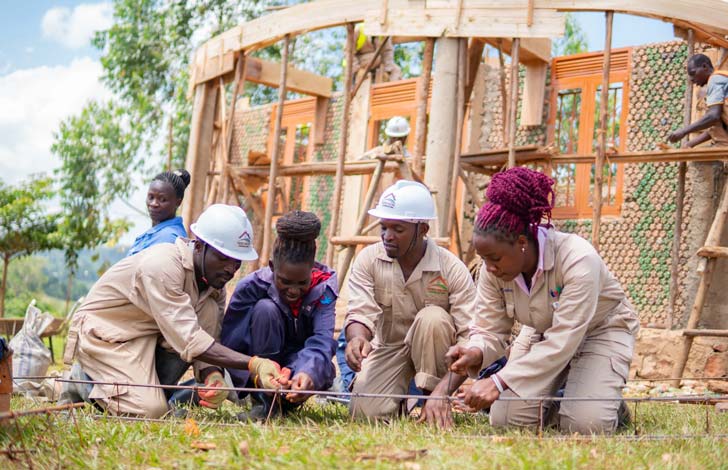
“Beyond housing construction, Pendeza Shelters empowers affected communities by providing training in waste management processes and construction skills, thereby improving their overall well-being,” the website continues.
“Through these initiatives, Pendeza Shelters not only addresses immediate housing needs but also promotes sustainable practices and community resilience in the face of environmental challenges.”
One such example is through a partnership with Gejja Women Foundation, a Ugandan nonprofit that empowers marginalized women and girls through business development, educational support, training in sexual and reproductive health, and more.
One of Gejja’s programs is the Safe Girl Initiative, which trains young women in the manufacturing of reusable sanitary pads. This offers an eco-friendly and cost-effective menstrual hygiene solution to girls in need, while empowering women through gainful employment.
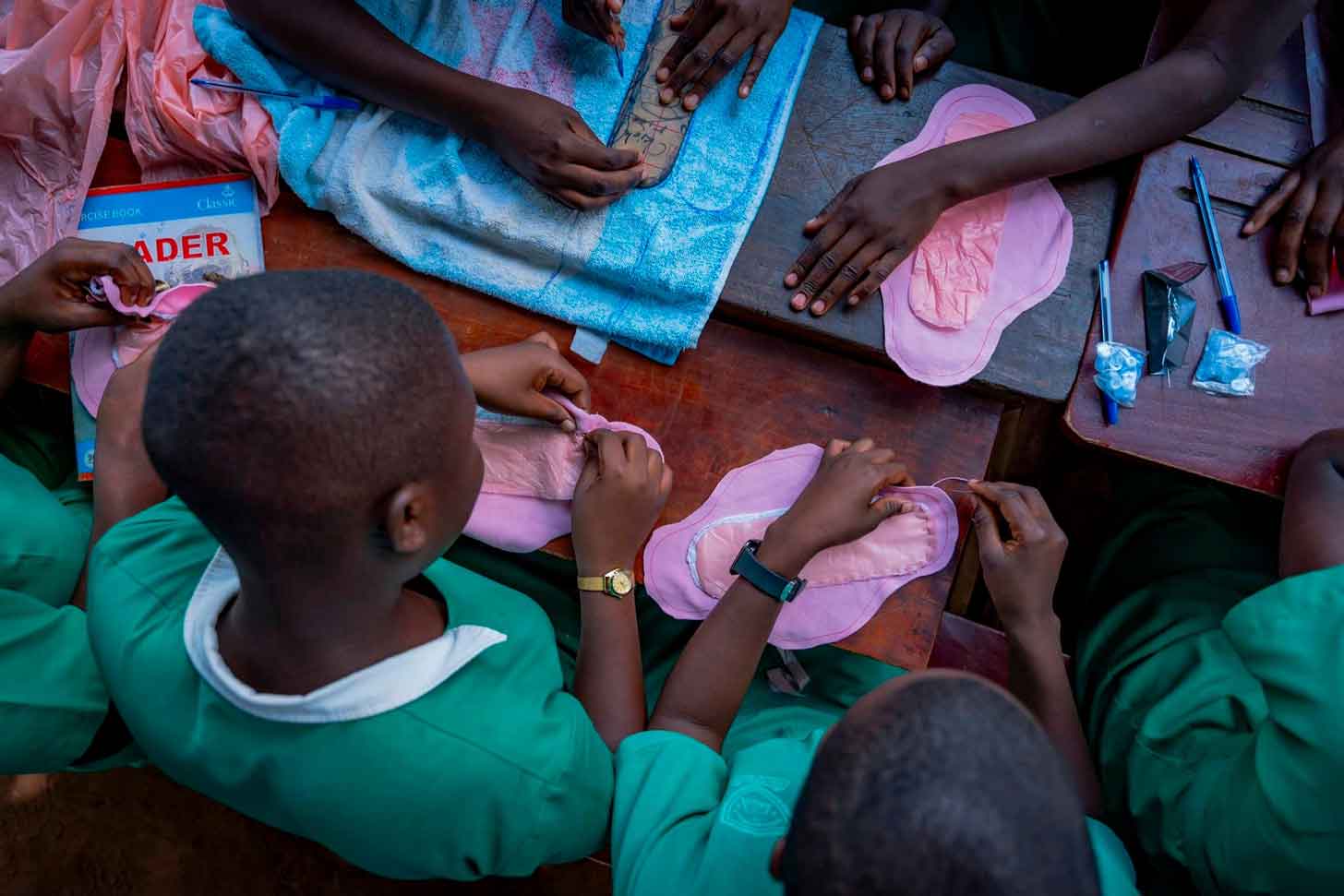
Safe Girl employs women with disabilities, and they work at the Gejja Women Foundation Empowerment Room, built by Pendeza Shelters. The center both trains young women in the program and stocks the menstrual products.
“We started in 2018 with two women tailors producing 100 kits a month,” the Safe Girl Initiative shares on its website. “To date we have 24 women at the Mpigi production site, and these produce up to 50,000 kits annually.”
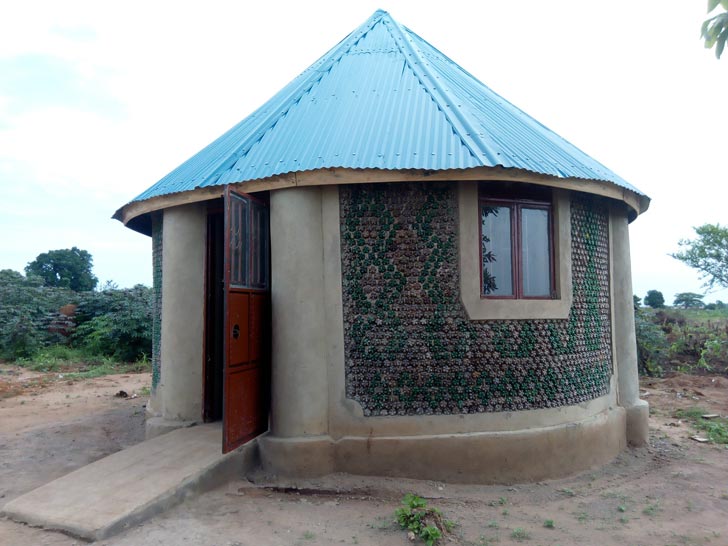
The women’s empowerment shelter is a sister location to Gejja’s Skilling and Production Rooms, which were also built with the support of Pendeza Shelters.
In this case, however, women involved with the nonprofit were the ones collecting, sorting, compacting, and constructing the structure, gathering 18,000 plastic bottles to bring it to life.
“Pendeza Shelters is supporting marginalized groups of people while empowering them financially to support their families and change the mindset that most of them have towards plastic waste,” Monday shared with MIT Solve.
“We have provided direct jobs to over 230 women and youths in different communities who participate in different plastic handcraft. Others serve on contract as waste pickers, sorters, compactors, and builders.”
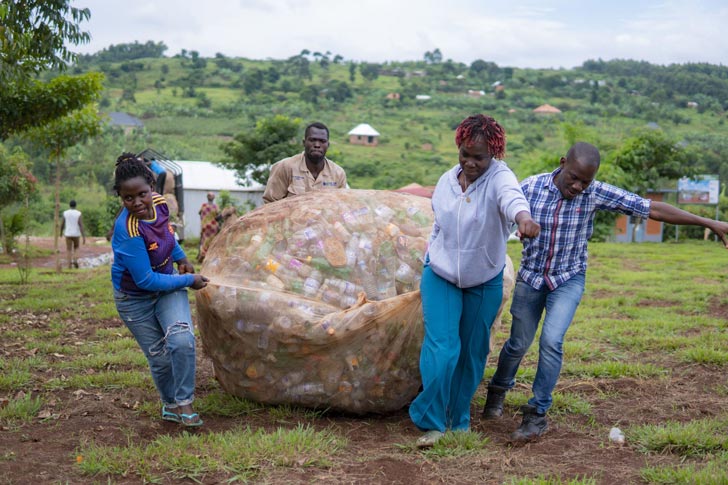
The efforts of Pendeza Shelters then have a ripple effect: As more people learn how to build these structures and manage plastic waste, the more impact they can have in neighboring communities.
Women and young people learn how to dispose of plastic waste responsibly and share their knowledge with others. Additionally, some start their own small businesses by upcycling collected plastic into bags, earrings, pen holders, and even their own eco-bricks.
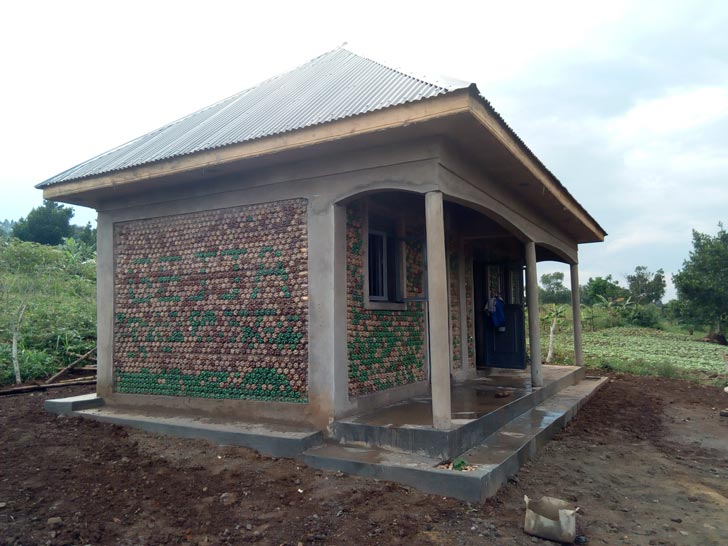
Local masons also support the construction of upcycled houses and are available to work as contractors or provide troubleshooting in the build.
“Knowledge of upcycling and recycling is spread from peer to peer,” Monday continued with MIT Solve. “As each community reaches sustainable acceptance, Pendeza Shelters reach out to other communities for monitoring and evaluation.”
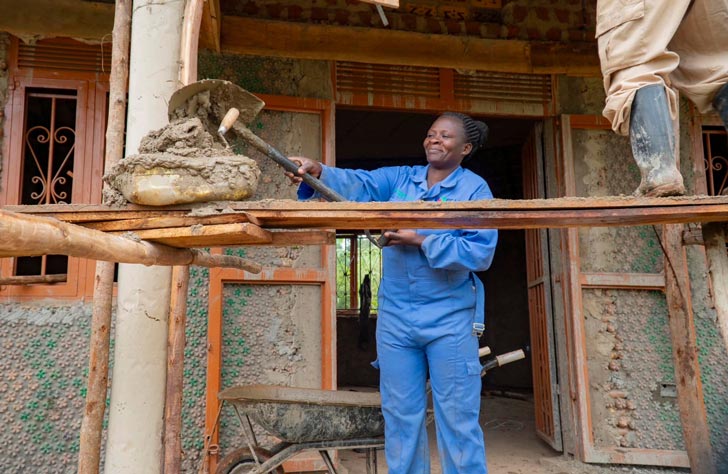
So far, Pendeza Shelters has been behind the development of 40 plastic bottle structures across Sub-Saharan Africa.
According to Monday, the company is able to make 20,000 eco-bricks per month, with the average construction period taking just three months to hand over to a client.
And for clients like Gejja Women Foundation, having a safe and sustainable place to grow can make all the difference.
“A project like this wouldn't have been possible without the dedication and hard work of Pendeza Shelters and the women,” a Facebook post shared about the Skilling and Production Rooms. “They poured their hearts into making this vision a reality.”
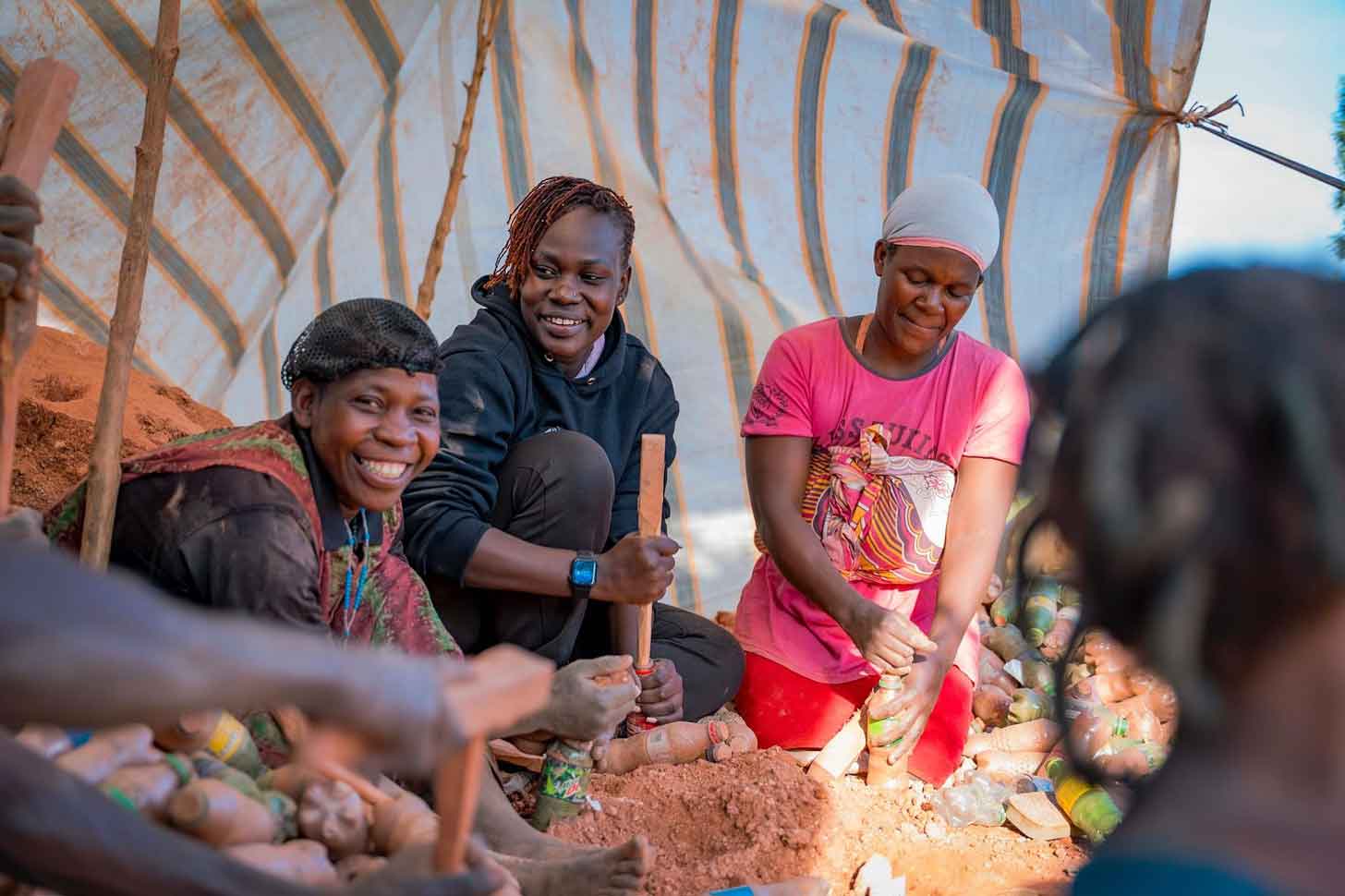
Now, the Gejja community is building a new cottage to expand their work.
“By turning plastic bottles, scattered across our communities and harmful when burned, into eco-bricks,” the nonprofit shared, “we’re getting rid of plastic waste and keeping our immediate environment clean and healthy at the same time.”
Header image courtesy of Pendeza Shelters
